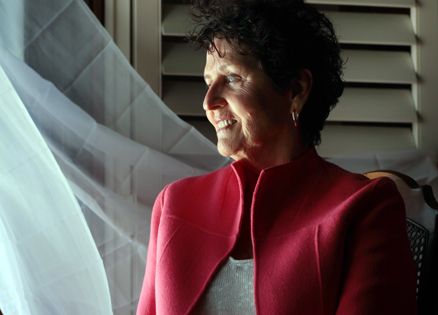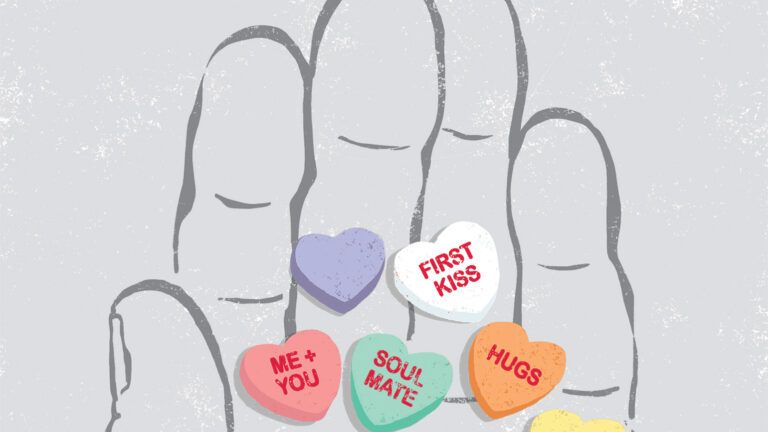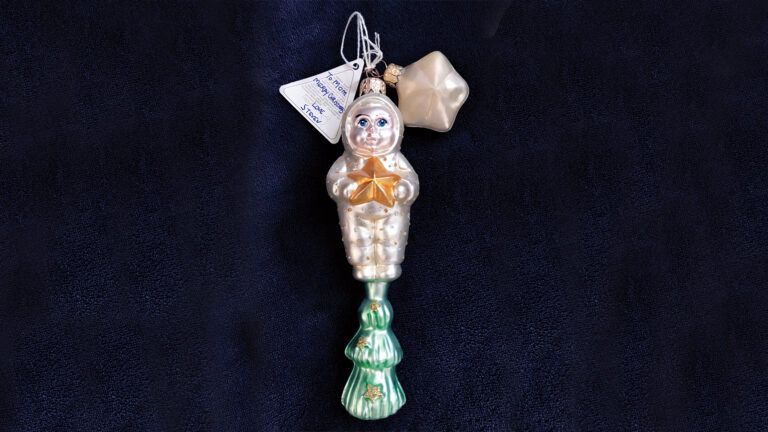“Oh wow. Oh wow. Oh wow.” Those were the last words of Apple’s cofounder and CEO, Steve Jobs, according to the eulogy his sister gave at his memorial service. Six little words that captured the public’s imagination. Jobs was one of the greatest innovators of our time, a creative genius who brought wonder to the world’s fingertips with products like the iPhone and the iPad. What did his final exclamation mean? What was he experiencing in those last moments? What wonders did he see that surpassed anything in his lifetime on earth?
As an editor at Mysterious Ways, I’ve come across many stories from people who have witnessed the unfathomable at their loved ones’ last moments—from cryptic messages, like Jobs’s, to visions of light. Sometimes there’s just a simple, joyful expression fixed on some point in eternity. My own grandmother, hours before she died, spoke of seeing a woman in white standing in her hospital room.
I couldn’t help but wonder if these moments are just the last gasps of consciousness—or if the dying are trying to tell us something important about what awaits us on the other side of life as we know it. I set out to find answers, from readers and from experts who’ve experienced and studied these remarkable transitional phenomena.
Like Becki Hawkins, a hospice nurse and the author of Transitions: A Nurse’s Education About Life and Death. Becki has spent more than 30 years working with the terminally ill and has been present for as many as 100 patients’ deaths.
“It’s like being on holy ground,” she says, “because a veil has opened and you’re part of that experience. I feel like a midwife or a doula, escorting them, helping them to be born into their next life.”
Becki estimates that at least a quarter of her patients have had observable otherworldly last moments. Some called out to God or reached out to something or someone unseen. Others reported visits from deceased family members or experienced rare flashes of clarity.
That’s what happened to our reader Charles Yancey’s 85-year-old father, James. He’d suffered the steady decline of Alzheimer’s for 16 years. Toward the end of his life, all he could do was grunt and moan. But something unusual happened two weeks before he died. After months of silence, James spoke.
“I’m going to see my boys,” he told his wife. She knew he was referring to the two sons they’d lost years earlier. His surprising behavior only continued. Four days before he died, James looked up at the ceiling of his hospital room and commented, “Beautiful. What a beautiful view!”
When his wife questioned him further, he said, “She’s smiling at me.”
“Who? Who’s smiling at you?” his wife asked.
“That girl.”
Charles never figured out who “that girl” was, but his father’s last days gave him immeasurable comfort. That he even spoke again was a miracle, as if he were readying himself for the next world.
“The Bible talks about how God makes us to sit in heavenly places,” Charles says. “And I think sometimes he gives us just a little glimpse of heaven to encourage us to hold on and to be patient and faithful.” A preview, you might say, of the glories to come.
These profound declarations aren’t necessarily the norm, though. What a dying person sees in their final seconds may simply be beyond words.
“Some of them will just smile,” Becki says. “Just get the biggest smile on their face and raise their hands up. Raise their arms up. And they just lie back down and they’re gone.” Smiling at what so many of us have been conditioned to fear.
One might argue that such moments only reveal the faith of the patient, and nothing more. But how to explain the prophetic last moments of Winnie, the grandmother of our reader Amy Hamman? Three days before Winnie’s death, she was confined to her bed in a rehab facility, heavily sedated. Amy was doing most of the talking by her bedside. Then, suddenly, her grandmother became inexplicably alert.
“How’s Chad’s baby doing?” Winnie asked.
Amy was stunned. Her son Chad’s girlfriend was indeed pregnant, but nobody had told Winnie a word about it. The couple wasn’t married yet, and the family feared the news would upset an already frail Winnie. Amy changed the subject. But her grandmother persisted, agitated.
“Chad’s baby girl,” she said. “He was there in the delivery room. He cut the umbilical cord. We were all there.”
Four months later, Winnie’s prediction came true. Chad and his girlfriend had a baby girl and Chad did cut her umbilical cord, with the family gathered at the hospital. Amy still can’t explain how Winnie had found out about the baby and knew the child’s sex even before Chad and his girlfriend did. “It was almost like she was being shown the future,” Amy says. As if God were reassuring her.
What causes these strange changes in someone at the end of their life? Are the reported feelings of joy and peace a side effect of palliative care? Dr. Karen Wyatt, a hospice physician and the author of What Really Matters: 7 Lessons for Living from the Stories of the Dying, has a different theory. The body, with all its ailments and limitations, is breaking down, she says. Not the soul.
“The dying become so beautiful, with this glowing light from within that you can see in their eyes and in their face,” Dr. Wyatt says. “I think it’s the soul just shining forth as the body is dissolving away.”
That could explain the greater clarity, the visions of heaven, the words of wonder, the ecstatic facial expressions. One editor here told me that his aunt started singing, singing quite beautifully, as she passed. In those last days and moments, maybe the soul is finally taking over. Perceiving what those trapped in earthly bodies simply cannot. And what they recognize isn’t something to be dreaded, but embraced. A mystery, yes, but an exquisite one. Even Jesus spoke as he died—“Father, into your hands I commit my spirit.”
I certainly felt my own fear of death diminish after talking to those closest to it. My grandmother’s woman in white, James Yancey’s “beautiful view,” Winnie’s foresight—together they add up to a message from the dying to the living. A message that those who work in end-of-life care say has fundamentally changed their views on death. Becki Hawkins, for one, says she has “no fear of death whatsoever.”
“It’s not about the horror of death, it’s the moving forward,” she says. “The actuality of stepping into that light they’re talking about. Stepping into that space that they’re reaching for. To see those people again who have gone on before. And to know that you’re moving on. You’re going home.”
It might even make you say, “Oh wow.”




